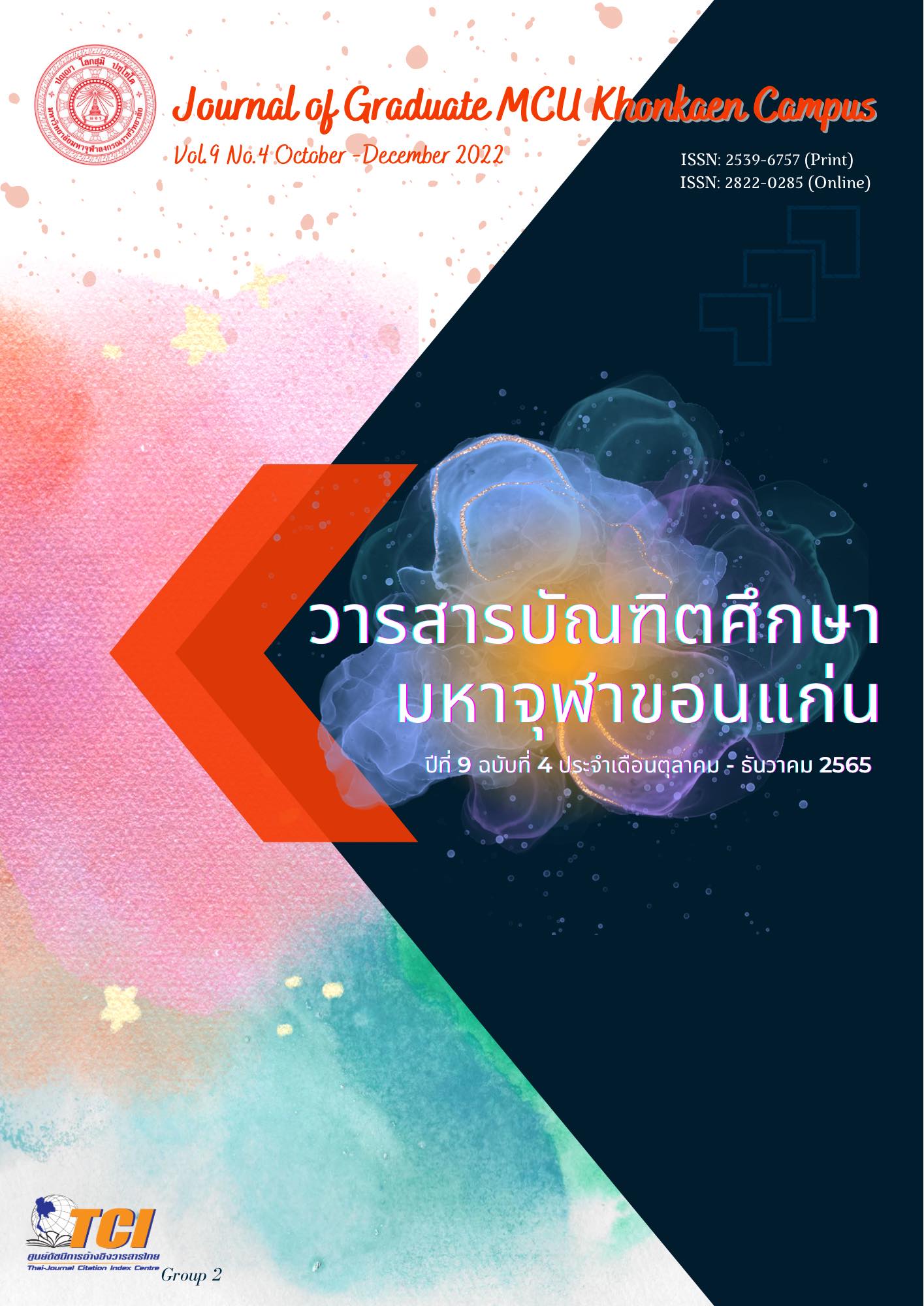The Short Curriculum Development of Agriculture for upgrade the Knowledge and Necessary skills with the Geographic Information Systems to become the Smart Agricultural Business Model for local Agricultural personnel in Kanchanaburi Province
Main Article Content
Abstract
The objectives of this research were develop short-term courses to increase knowledge and skills necessary in agriculture with Geographic Information Systems to become a smart agribusiness model for personnel in the local agricultural sector in Kanchanaburi Province. The population and the key informants were Experts,
Agricultural personnel of local government organizations, sample for the course tryout and local farmers by the Purposive sampling method. This research uses the concept of Geoinformatics and Curriculum Development as the main concepts. The results of the study found that The Curriculum development process is based on the concept of systematic curriculum development, which consists of 3 main systems: the curriculum drafting system, Course management system and the Curriculum Assessment System consists of Assessment Planning, Define assessment tools, Course tryout, Data Collection and Analysis and reporting results to target groups and stakeholders. and the Curriculum Quality Assessment the method was used to find the average of opinions about the quality of the short-term training courses with experts divided into two main parts: components of the short-term training courses, the first part was the introduction average was 3.72 and the course structure average was 3.81. The second part is the components of the short-term training course, which consists of 3 main components: the course structure average was 3.72, the learning units average was 3.67 and the measurement and evaluation of training average was 3.77, all components were at the highest level.
Article Details

This work is licensed under a Creative Commons Attribution-NonCommercial-NoDerivatives 4.0 International License.
References
กระทรวงเกษตรและสหกรณ์. (2560). ยุทธศาสตร์เกษตรและสหกรณ์ ปี 2560 – 2579. กรุงเทพฯ: กระทรวงเกษตรและสหกรณ์.
กรุงเทพธุรกิจ. (2563). เร่งยกระดับเกษตร 4.0. สืบค้นเมื่อ 4 กุมภาพันธ์ 2563, จาก https://www.bangkokbiznews.com/news/detail/860862
เชษฐ์ ศิริสวัสดิ์ และคณะ. (2562). การพัฒนาหลักสูตรการอบรมภาษาไทยระยะสั้นสำหรับนักศึกษาชาวจีนของคณะศึกษาศาสตร์ มหาวิทยาลัยบูรพา. วารสารการศึกษาและการพัฒนาสังคม, 15(2), 92-97.
นิติ นาชิต, ชัยวิชิต เชียรชนะ และ สิริรักษ์ รัชชุศานติ. (2559). ศึกษาการพัฒนาหลักสูตรฝึกอบรมการนำรูปแบบการประเมินหลักสูตรวิชาชีพระยะสั้นตามแนวคิดการประเมินแบบเสริมพลังอำนาจไปใช้ในสถานศึกษาสังกัดสำนักงานคณะกรรมการการอาชีวศึกษา. Veridian E-Journal, Silpakorn University, 9(1), 611-629.
มารุต พัฒผล. (2556). เอกสารประกอบการสอนรายวิชา ลส701 กระบวนทัศน์ใหม่การพัฒนาหลักสูตร. กรุงเทพฯ: มหาวิทยาลัยศรีนครินทรวิโรฒ.
เรืองแสง ห้าสกุล, ชัยวิชิต เชียรชนะ และ ไพโรจน์ สถิรยากร. (2559). การพัฒนารูปแบบการบริหารหลักสูตรระยะสั้น โดยใช้โมดูลฝึกอบรมในการจัดการเรียนการสอนสำหรับสถานศึกษาสังกัดสำนักงานคณะกรรมการการอาชีวศึกษา. วารสารวิชาการครุศาสตร์อุตสาหกรรม พระจอมเกล้าพระนครเหนือ, 7(2), 52-60.
วิชัย วงษ์ใหญ่. (2554). การพัฒนาหลักสูตรแบบครบวงจร. เอกสารประกอบการสอน รายวิชาทฤษฎีการพัฒนาและเปลี่ยนแปลงหลักสูตร. กรุงเทพฯ: มหาวิทยาลัยศรีนครินทรวิโรฒ.
วิเชียร เกตุสิงห์. (2538). ค่าเฉลี่ยกับการแปลความหมาย : เรื่องง่าย ๆ ที่บางครั้งก็พลาดได้. วารสารข่าวสารการวิจัยการศึกษา.
วัฒนาภรณ์ โชครัตนชัย และ หงส์วริน ไชยวงศ์. (2564). การพัฒนาหลักสูตรระยะสั้น ขนมไทย เพื่อยกระดับเศรษฐกิจฐานรากเกษตรกรสมาชิกนาแปลงใหญ่กลุ่มจังหวัดนครชัยบุรินทร. วารสารชุมชนวิจัย มหาวิทยาลัยราชภัฏนครราชสีมา, 15(2), 82-93.
สำนักงานเศรษฐกิจการเกษตร. (2560). ยุทธศาสตร์การเกษตรต่างประเทศของกระทรวงเกษตรและสหกรณ์ พ.ศ. 2560 - 2564. กรุงเทพฯ: สำนักงานเศรษฐกิจการเกษตร.

